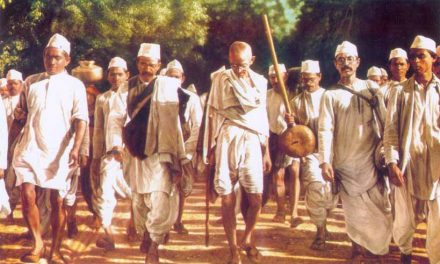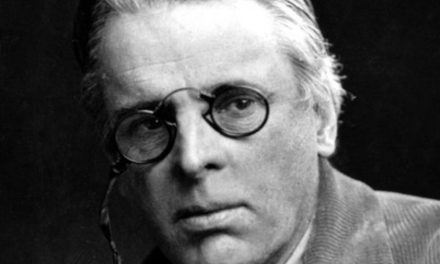VOLUME VIII – CHAPTER 7
PROFESSIONAL DEVELOPMENT OF THE STAFF

The proof of the pudding is in the eating. But the eating will be a pleasure only if the preparation that goes before it has been well thought out and executed excellently. So also, in a school. The final output, excellence of the students will become a reality only if the staff have been earlier motivated to become excellent. The school’s ambience, culture, avenues for growth, awards, rewards and recognition, opportunities all these contribute to the development of their potential. The school should attract talent. The author remembers how the reputed schools of Coimbatore would vie with one another to recruit the top teachers in the B.Ed class of Sri Ramakrishna Mission Vidyalaya. Even now some schools advertise saying they prefer candidates who are first class graduates, PGTs and the compensation also equally attractive.
Mani High School, Coimbatore, TVS School, Madurai, Sri Akhilandeswari Vidyalaya, Sri Rangam – these schools are attractions for the teachers because they are liveable and loveable, here the teachers are enabled to enjoy what they do. The management challenges them to higher levels of achievement.
These institutions have a culture of their own. The communication between the staff, their understanding of the goals that their managements have set for the school, trust, loyalty and respect become mutual. The top becomes an example and a role model.
These managements have understood the needs of their staff to grow because they know that their growth adds value to the school. So they provide opportunities for them to upgrade their knowledge and tone up their skills. Their training programmes are so planned to increase and improve the competency of the staff.
In private schools, performance can be reviewed and incentive awards given for high achievements. This may not be possible in govt schools. Traditional mode of appraisal may not suit today’s motivational needs. Results, reviews and rewards should be linked. Review should be done periodically so that the teachers can be kept on the alert always. There should be a sort of consistency in your evaluation and discussions. Review should be positive. This will aid the staff to look into themselves and take suitable remedial measures. Review should not be a fault-finding exercise, but a method to help the staff look deeper and find out better methods.
In every inspection the author first used to praise the teacher for the strong points in his/her teaching. And then slowly ask how he/she thinks the teaching of that lesson could be made more interesting and meaningful to the students, then when they come up with their own suggestions, the author used to add one or two of his own asking the teacher to try out these ideas. Also, when you first praise the teacher for the brighter aspects of his/her teaching, half the battle has already been won, and he/she has started leaning towards you. Review technique has to vary from a to z as there may be senior staff, middle group and the juniors. If you evolve a system, a culture, an ambience that cherishes, aids, motivates, and rewards, then you can be sure of high class performance from your staff. The greatest asset of a school is its staff. Invest in them and the returns will be high.
Remove campus stress. Take a cue from the University of Hertfordshire in Southern England which has set up a room with a swirl of green and blue lights, slowly emanating smoke – an amalgam of lights, sounds and smells where the staff can escape from the haunting schedule of today’s life, at least for some time. The green light will awake soft feelings. The blue light will turn thoughts inwards.
Have you ever left your A.C. glass chamber and walk around the school to see how it looks like? If everything is spick and span, whether house- keeping activities go on in a clock work precision, whether even the minutest detail is attended to. If, you have made the school a pleasure to visit, (as every University or School in U.S.A., U.K or Europe is). If you want to learn how school house keeping should be done, visit once the Taj Coramandel Hotel and see how it is and how it should be done. Round the clock efficiency! It’s guests – high fly personalities and celebrities ready to blow up and so demanding that your head is forever in the guillotine from the General Manager to the gate keeper and room boy– it is systematic planning, meticulous attention to detail, patience, and preparedness to expect the unexpected. They have a meter to check the gloss of the marble floor and a meter to measure if linen has a 90% whiteness.
Every day the custodian looks into minor blemishes like a crack, a stain, a tear and set it right. You will understand what makes a great hotel great.
Your students are the kings and queens. Your staff are the Presidents. Your parents are Prime Ministers visiting your school. Don’t you think that you should bestow the same attention and care as in the Taj.
When your school is inspected, place a teacher and a student (recognition for their good work) as a staff in waiting for the Inspecting Officer. (as there is a Minister in waiting when the President visits a State).
Place a staff (recognition) as the Chief Executive for the Annual Day/Sports Day or any other big important function in the school. The Principal (you) shall be an invisible facilitator. This technique, the author learnt from Sri. T.S.Avinashilingam who used to place one Principal or Senor professor as the Chief Executive for the Gurupooja (birthday celebrations of Sri Ramakrishna Paramahasa) on the first Sunday of January every year. A mammoth affair — one Lakh people participating – in Sri Ramakrishna Mission Vidyalaya, Coimbatore. In January 1967 the author was chosen for this honour. The author has practised this technique in all his schools with great success. He also used to put another teacher as the Principal’s P.A during these functions. This is an opportunity given to the staff to develop their leadership and organisational abilities.
Good promising teachers were used to be encouraged by the author to take up Action Research Projects. When the author used go out to help other schools, he used to nominate one PGT by turns to look after the school in his absence. This was a preparatory exercise for them to become Principals later on. Teachers were honoured in the assembly for their meritorious achievements. Good work was recognised by deputation to a Conference / Seminar or to go to another school. Whenever there was special lecture on any subject, for eg. Nani Palkiwala on the budget, the Economics teacher was asked to attend and give a report in the next staff meeting.
In short, right ambience leads to excellent achievements.
A staff member’s work has to be evaluated and he has to be helped to shore up his strengths and remove his deficiencies. For both, adequate training has to be given.
Harold Sayfield defines appraisal as :- stripped off all jargons, it is simply an attempt to think coolly, about each person’s performance and future prospects against the background of his total work situation.”
Performance can be appraised by describing the best aspects of the person’s work and suggesting possible areas for improvement. In the context of HRD, appraisal should serve the purpose of evaluating an employee’s performance of a job in terms or its requirements.
Appraisal need not be top down only. It can be bottom up also. This has been done by big companies like Gulfoil, Thomas Cook, Mafatlal Industries, Cibaca, Wipro and DHL courier.
The purpose of training is to bridge a short term gap between the job’s requirements and the staff’s present capabilities – knowledge, skill and attitude, whereas development is a long term involvement and commitment. Whenever the author found a PGT as a “potential Principal” he would take charge of him and shape him up towards that point. The author himself had been moulded by Sri V.T.M. Thirunavukkarasu Chettiar, the Head Master at whose feet he started his career in 1951 and Sri T.S.Avinashilingam is one who made him what he is.
Training is to meet specific needs. But development is more broad-based and concerned with the total person. While training can be piece-meal, development is an ongoing process which needs full support of the top management and endorsed as one of their basic institutional values.
Your development plan must aim at the following:-
A) to ensure that sufficient number of teachers with the required skills is available to meet the present and future needs of the organisation. In KVS several PGTs have been promoted as Principals. By and large most of them have proved their worth. But some have made us realize that we could have been more careful and circumspect during the interview in assessing their ability, attitude and aptitude.
B) to encourage the staff to grow as persons in their capacity to handle greater responsibility.
C) to improve performance of staff at all levels in the post they now hold.
D) to sustain their good performance throughout the year.
As a starting point for HRD (Human Resource Development) or as they call it now – HRM (Human Resource Management), information about future requirements would be just meaningless unless accompanied by present potential material.
Such information should include each one’s name, age, date of birth, qualification, training programmes attended and conducted, previous job experience, salary details , past 5 years’ appraisal, scores, potential rating assignments given and preferred, and personal career plans.
Once we know “what we have”, the next step is “what we need”. Staff recruitment is the process of attracting potential applicants. It depends upon the image of the school, salary and perks, and growth avenues.
Selection is the next logical step and comprises psychological tests, group discussions and interviews. Further, in today’s context, Head Hunters and Consultants too can be utilized to recruit the best.
Training essentially consists of 3 stages:-
1)Pre – Training 2)Training 3)Post – Training
The basic planks are the performance appraisal and the potential appraisal systems.
A career planning programme is designed to develop paths by which planning and development helps the staff to develop themselves to their fullest capacity and make the best use of their talents from the institution’s point of view.
A career plan’s basic purpose is to synchronize institutional human planning with the individual’s personal career planning.
~~~~~
VOLUME VIII – CHAPTER 8
THREE ACID TESTS

Your real test comes in choosing people. His C.V. Is excellent, nice credentials, impressive back ground, interview performance is good; handshake is strong and firm, maintains eye contact, smart answers— but something tells you that he does not fit. That gut-feeling you have to develop – a grass hopper, low energy radiation, that plus factor is missing. Your intuition should tell you that. Hire people with potential who are prepared to grow with the institution.
Dig deep and find out why the candidate has left the previous job; is it that he expected too much or wanted no interference from the Boss or colleagues to agree with him always or he is too full of energy to be restrained, wants to head a team, or needs a challenging post. Listen intently and get into his inner mind. This will help you understand him much better.
Your school, though high-tee should be inclusive and not exclusive . Your philosophy and programmes should be consumer- driven (parents) and not by your competitors. You should seize opportunities to differentiate and create significant value to your customers (students). By enveloping them with services that they want and need to go up. Your school must be one to which parents both patriarch and plebeian would like to send their children. Because it is firmly based on cultural roots, national moorings, and native ties. Your school should be something more than what it is. You should walk the extra mile to add value to their lives. You have to change to move in tune with their dreams so that you develop a deep bond with every staff and student.
The only benchmark for you should be the one you set for yourself assessed by outsiders– retired Professors from Teachers’ Colleges, Officers of the Education Department and Principals of schools. A board consisting of one from each category will be useful than trying to do the selection ourselves.
Sri Jayakumar. M.D.of ‘TONZ’ the animation company, when asked about his goal five years down the line, replied promptly:- “An Oscar winning production house”. Such an ambition you should have to make your school the best even if not the biggest.
The mantra to achieve this will be (to go back the full circle to where we started) to hire your staff based on three acid tests – integrity, intelligence and maturity, and further on their positive energy to energise others, courage to make tough decisions and ability to get things done.
Finally, passion for the profession.
~~~~~
VOLUME VIII – CHAPTER 9
INCLUSIVE PERFORMANCE APPRAISAL

Decisions relating by promotions are influenced not only by factors such as competence, contribution and commitment but also by factors like chance, chemistry and convenience.
James Hayes says:-
“in an organisational setting no one person can be completely responsible for any result….. Implicitly and of necessity all effort is team effort, all results team results”.
Not everything of a person’s work can be measured. Performance on the job is not like a 100 meters race where we can stand around with a stop watch and measure the outcome. It is far more complex, more intricate. spread over time and impacting many people and issues, all of which are not fully available for observation and measurement.
Indeed, not everything is observed, even if observable. Achievement of an individual’s agreed target is easily evaluated. But what of his impact on group performance? The many special assignments he carries out, especially the unforeseen and the unexpected? What about the contribution that he makes to the future success of the Organisation and to other functions? The innovations he brings in, the risks he takes, especially the risk of being proved wrong!
What about the many sacrifices he has made, of which no one else can know. And things done beyond the call of duty? Do we keep in view the pleasantness and charm he has shown while performing his duties? The autonomy exhibited, the goodwill he has created, the leadership shown, the learning acquired, the mistakes of others quietly managed and undone, the good example shown and the inspiration provided!
The helping hand given despite being under pressure, the tolerance shown of others’ ignorance, on misdeeds, and the coolness with which a crisis is overcome?
There are so many sides to a person’s contribution, so many facts that any evaluation will necessarily be only partial?
During his service the author had always taken into consideration all the above while writing the Annual Confidential Report of each staff. And he used to keep a record of all the above as and when they came to his notice!
~~~~~
ONE WHO KNOWS (VOLUME VIII – CHAPTER 7 to 9)
(DIMENSIONS OF THE LIFE AND WORK OF A PRINCIPAL)

995) One to whom success is the credibility he has built over time.
996) One who knows that his ability to handle criticism and using it constructively to build his potential gives mileage to his access based on the challenges overcome and opportunities explored.
997) One who knows that criticism is necessary though not agreeable as it calls attention to an unhealthy state of things.
998) One who knows that the art of communication is in the language of leadership.
999) One who, after making a point pauses for 2 seconds to allow people time to process what he has just said, as otherwise, he will undercut the power of what he was trying to convey.
1000) one who tells the first time teacher that his life is like that of a first time mother –got out of it. Forego easy way of life, independence., the urge to express, share, vent, collaborate, have time out, have own space, bounce back to life, have one’s way, license to say without a sense of guilt.
Being a part of another life is a great joy and memories of your first time teaching you will always cherish.
1001) One who treats consumers as humans and not as targets and makes them his publicity agents / P.R.O s.
1002) One who knows that they still need a canvas on which they can paint which he and his staff will provide and they will make it a fascinating mural.
1003) One who knows that to manage in today’s volatile world, inner excellence is the key.
1004) One who knows that failure is a critical moment in one’s life and the only good thing about it is the experience he has had.
1005) One who finds time to do everything.
1006) One who has time daily to think of god.
1007) One who believes he is capable of doing something and for whom there is no disconnect between possibility and achievement.
1008) One who knows that disorganization can be as big as an impediment as lack of discipline or procrastination.
1009) One who keeps abreast of new learning and brushes up his skills as a good way of honing his capabilities.
1010) One who has assimilated the advice of Douglas Fairbanks:-
“In taking stock of ourselves, we should not forget that fear plays a large part in the drama of failure. Fear comes with the thought of failure”.
1011) One who spends time with his direct reports daily and is focused on a problem till it is solved.
1012) One who makes a yearly plan and fixes it on his wall; does not check e-mail or mobile in a meeting; comes to office early and plans tomorrow’s work to day evening itself.
1013) One who knows he is measured by his accessibility and capability and punctuality.
1014) One who uses his daily commute (if by train or bus) to plan his day; makes notes of meetings and commitments made by each one; at any meeting has notes of at least 12 previous meetings to check what action has been taken, to keep his direct reports alert and careful.
1015) One who walks around the office, meeting people and gets issues resolved through corridor conversations; spends not more than one hour daily on e-mail and doesn’t send more than 10 e-mails daily.
1016) One who wakes up, does yoga and meditation; gets to the office early before everyone to attend to file work and think; build relationships during the rest of the day; prefers talking to people face to face or on phone; keeps replies – short and precise and takes a long walk in the evening.
1017) One who
(1) clears mail box every night
(2) spends time with family at weekends
(3) meets at least 2 persons every week in his area to gain a fresh perspective.
1018) One who
(1) keeps a hand written diary of things to do
(2) has a “listen only” session with staff once in 3 months
(3) calls staff and wishes them on birth days, wedding days and anniversaries.
1019) One who
(1) travels for new ideas
(2) takes one senior staff with him
(3) looks for insights.
1020) One who
(1) has a “war room” meeting for emergencies
(2) takes care of visitors from Head Quarters.
1021) One who writes down everything he thinks is important.
1022) One who asks people to repeat what he said.
1023) One who reads widely and in depth.
1024) One who
(1) sleeps around 4-5 hours
(2) doesn’t call but walks up to his colleagues
(3) delegates work because someone is better than him at certain things
(4) interviews candidates himself.
1025) One who
(1) has coffee or lunch with staff once a quarter
(2) is a part of his staff’s special occasions –kid’s birthday, anniversary, promotion etc.
1026) One who
(1) doesn’t let emotions dictate his reaction
(2) allows people to bring bad news to him.
1027) One who plays a game with the staff in the evenings.
1028) One who
(1) goes well prepared for every meeting
(2) requires necessary info to reach him 48 hours earlier.
1029) One who conducts review meetings regularly.
1030) One who takes 5 holidays
a) self only
b) with wife only
c) with family only
d) with friends
e) with staff
1031) One who neither fights nor flies.
1032) One who, when faced with a colleague’s irritating behaviour, goes beyond the useful responses.
1033) One who checks up how often he felt irritated, defensive or silently resentful because he has had his time wasted or has been misunderstood, under-valued or treated unfairly and how much energy have all these consumed?
1034) One, however compelled, doesn’t allow his reactions to escalate the conflict but rather help to resolve it.
1035) One who has capacity to value and appreciate himself in spite of his missteps and limitations.
1036) One who knows that all are perfect just as we are and we could use a little improvement.
1037) One who, whenever anyone comes to him with a complaint against another, insists that he says something good about that person he wishes to criticize as everyone must have some good in them too.
1038) One who is a “first class noticer” who
(1) recognises talents
(2) identifies opportunities
(3) avoids pit falls.
1039) One who sometimes gives up focus and instead observes what is going on around, the opportunities and the threats in the environment.
1040) One who has developed “unintentional blindness” and “bounded awareness”.
1041) One who knows that ‘what he sees’ and ‘what he does not see’.
1042) One who knows “how to put the heart back into shopping” and takes care of the creature, comforts of parents and visitors.
1043) One who knows to segmentise the parents and potential parents. Gain deep insight into their experimental needs leading to sharper and more relevant targeting by adopting a spray paint approach.
1044) One who adopts a sales man’s or an insurance agent’s approach and nurture, build a natural trust and relationship.
1045) One who is one step ahead always and is aware of his next move based on his prospects, motivation and actions.
1046) One who creates a consistent customer experience monitored by him.
1047) One who always sees an opportunity in the midst of chaos.
1048) One who knows the other person and knows himself and so has no fear of the result.
1049) One who knows the 3 types present in an institution viz.
A) Givers:-
Who asks what can I contribute? And how can I add value?
(1)look for ways to be helpful without strings attached
(2)share knowledge
(3)show up early
(4)stay late to help out a colleague
(5)looks for the potential in everyone
(6)is not conscious of status
(7)sets challenges and goals
B) Matchers:-
Try to maintain an even balance of give and take,try to keep fairness and a sense of quid pro quo.
C) Takers:-
(1) view interactions as a way of extracting value from other people
(2) approach people with a mindset of “how can I get as much as possible from this exchange
(3) tend to pursue the dominant path
(4) try to earn respect and influence by being assertive (5) control things and convey superiority
1050) One who knows that leadership is about carrying in a dignified manner.
1051) One who knows to put forth his point of view firmly and softly, silencing the others.
1052) One who knows that people follow leaders who have a powerful, energetic, refreshing beautiful aura.
1053) One who knows to push most or the management’s decisions and is never a bottleneck for decisions.
1054) One who knows when to stop doing things and how to focus the institution on just a few things.
1055) One who spends time on growing talent.
1056) One who knows his strengths and limitations and surrounds himself with people that complement him.
1057) One who has an incredible humility about him even though he is fiercely confident.
1058) One who never wavers, never goes to an extreme point but always stays calm.
1059) One who knows that everyone watches him all the time, they really watch him in the time of a crisis.
1060) One who makes his staff know that he shall lead the team through.
1061) One who knows that experience is not the enemy, but the hubris that is often a by-product of experience that is our enemy.
1062) One who knows that everything about his institution can be duplicated by someone with more money, except his staff, his culture and the information he owns.
1063) One who knows that one thing, brilliance, can’t give the experience of actually dealing with people which can only happen by living long enough to deal with people.
1064) One who understands how people fit into the evaluation, how growing changes the dynamics of the institution and how to be more self-aware.
1065) One who understands that different demographies require different leadership approaches and remembers that what got him here won’t get him there tomorrow.
1066) One who knows that if he is growing his institution, the person who has to change the most is the person at the top (himself) if he doesn’t want to end up as a “has been”.
1067) One who never succumbs to perceptions about history and culture.
1068) One who has 2 E.A.(Executive Assistants) one administration savvy and one with academic acumen and ask them report to him every morning half an hour before Assembly.
1069) One who doesn’t feel uncomfortable mingling with staff.
1070) One who builds strong external and internal relationships
1071) One who knows that training with action is remembered and trains the seniors for higher responsibilities.
1072) One who gets advice and consultation from people who know his work.
1073) One who is honest and open about what he can and more importantly what he can’t do.
1074) One who doesn’t misunderstand and misuse tools like “Lean” “6 Sigma” and “Kaizen”
1075) One who knows that plan without action will not take him anywhere.
1076) One who continuously sees how his performance (in school) compares with competitors.
1077) One who aligns his work plan with his strategic plan.
1078) One who fixes accountability.
1079) One who knows that leadership is the first one in all excellence frame work, that he has to lead from the front and it has to be driven by him not just in speeches but in continuous action.
1080) One who takes a field trip into his work area to know his customers – staff, students, parents, community and vendors. – go to each class, go around lunch time, eat with them once a way, invite them for lunch or tea, visit homes of staff & students.
1081) One who steps into a rookie state –a way of approaching a task when he is new to something that is important and difficult.
1082) One who is like a back packer exploring a new terrain –be alert and in a seeking mode –a hunter gathering mode.
1083) One who knows that in the initial stages he would like to show quick results and so be in a fire walker mode.
1084) One who knows that having a right question is more important than having a ready answer, because while answers are static, questions are dynamic, open up possibilities and focus the energy and intelligence of a team and that rookies are naturals at asking questions.
1085) One who is a highest performing rookie when he, as an experienced professional at the executive level comes out of one dream and pull into a hot seat and put to use his leadership skills, ability to work with people and communicate well.
1086) One whose staff, when they know he needs their help, tend to step up to find as well as innovate.
1087) One who doesn’t think that youngsters need to go through the press, before being given any big assignment, because he knows that they want responsibility and he has to feed them with a steady diet of challenge.
1088) One who knows that trust creates the space to be transparent and that the greater the transparency, the more the inner ease we experience.
1089) One who knows that the sky allows its space for the sun to shine and the sun, though shines, never forgets that without the sky, It would never have got an opportunity to shine and so it always feels grateful to the sky, that sky knows how powerful the role of the sun is. But the greatness of the sky is it never aspires to do that role by itself. Because it knows that what the sun can do, it can’t.
So he knows that if collaboration has to happen –if relationship has to sustain, then one of the two must take the role of the sky and the other must play the role of the sun and if both want to shine, then there will be ego issues.
So he identifies when he has to be the sky and when to be the sun in each and every role he plays.
1090) One who knows that justification is a double-edged sword, which will kill him as well as the other to whom he is justifying and that he should never use his words to explain his action, that his action should speak for him and knows that it is how he can fix values which will become the guiding light in his life.
1091) One who is a transcendent leader with his head in the clouds and feet firmly on earth.
1092) One who knows that what was called
(1) labour relations in the 60’s
(2) personnel management in the 70’s
(3) HR management in the 80’s
(4) talent management in the 90’s and
(5) now in the 21st century, it is the talent acquisition, talent retention and the talent pool
1093) One who harnesses talent better than his competitors.
1094) One who knows that one who can lead the best can deliver the best.
1095) One who knows that a connection culture is the collective attitudes, language and behaviour of a group that creates a bond, that moves the self-centered people towards the group-centered membership.
1096) One who makes the staff feel included and part of the team instead of feeling unsupported and left out or lonely and make them develop a supportive, co operative and collaborative relationship.
1097) One who avoids a culture of control where one with power, status and influence rule over others.
1098) One who avoids a “culture of indifference” where everyone is busy that they don’t take time for relationship.
1099) One who promotes a “connective culture” where he communicates an inspiring vision, lives it and values it.
1100) One who gives freedom of mobility so that they can access opportunities for growth.
1101) One who knows that if he has a personality, he need not wear a personality.
1102) One who does not make his today the enemy of tomorrow and yesterday the master of tomorrow.
1103) One who advises his staff that even if a student moves away from him, he should always move towards him.
1104) One who advises his staff that though his profession may be teaching he should have the heart of a teacher.
1105) One who cautions his staff to see that their students do not become also–rans.
1106) One who asks his staff to make their students think what has not been thought.
1107) One who knows that he will be remembered not for what he did one day, but for he had been doing consistently.
~~~
WORDS can confer strength; they can drain it off; Words can gain friends; they can turn them into enemies; words can elevate or lower the individual. One must learn the habit of making one’s words sweet, soft, and pleasant. A person is judged by his words; words inflict damage in other ways too. Whenever we talk disparagingly, defamingly, sarcastically or hatefully of others, they get recorded on the tape, which is our own mind. – Bhagawan Sri Sathya Sai Baba





